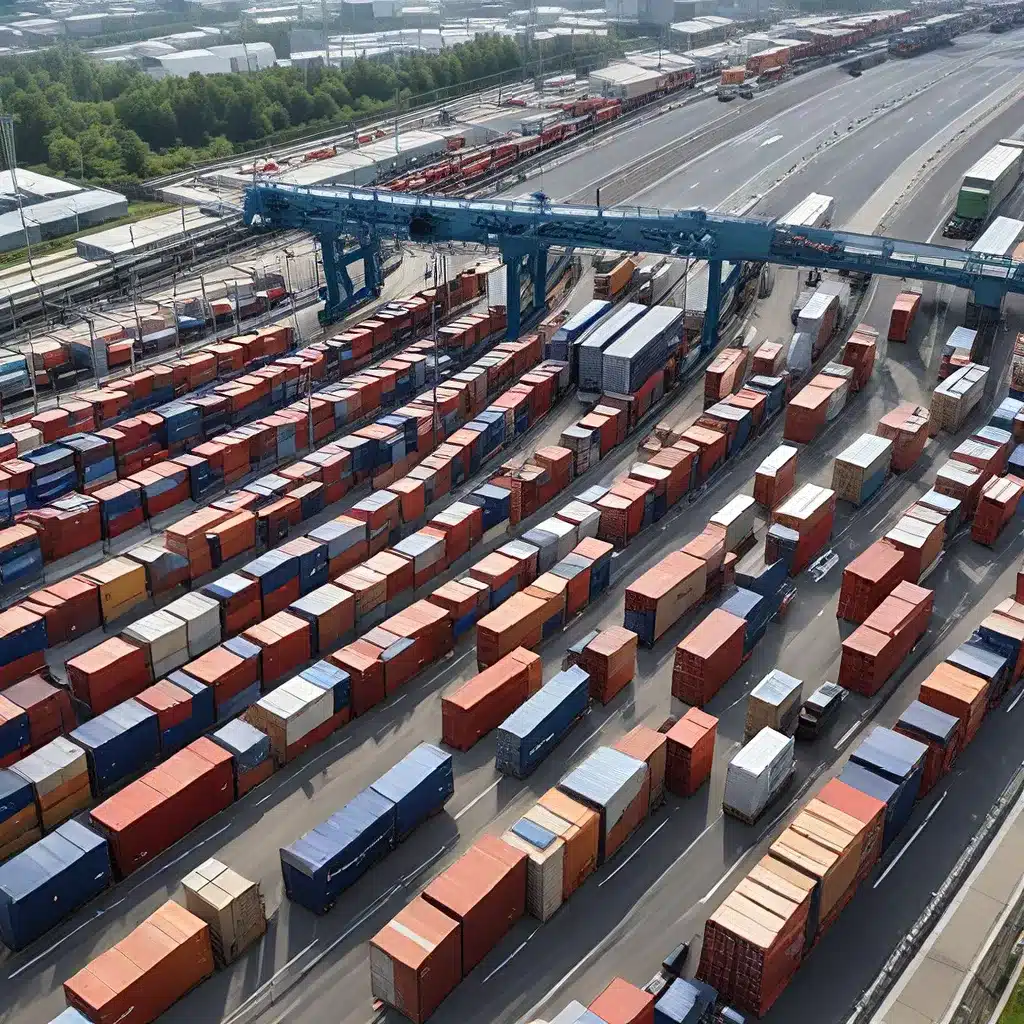
The Rise of RFID in Logistics and Transportation
Radio Frequency Identification (RFID) technology has been a game-changer in the logistics and transportation industries, enabling unprecedented levels of efficiency, visibility, and optimization. As the world becomes increasingly connected through sensor networks and the Internet of Things (IoT), the integration of RFID into supply chain management has revolutionized how goods are tracked, monitored, and delivered.
At the heart of this transformation lies the ability of RFID systems to automatically identify and locate tagged objects without the need for line-of-sight or manual scanning. By embedding RFID tags into pallets, containers, or even individual items, logistics providers can gain real-time visibility into the location and status of their assets, streamlining operations and improving decision-making.
Optimizing Fleet Management with RFID
One of the primary applications of RFID in logistics and transportation is in fleet management. By equipping vehicles with RFID readers and strategically placing RFID checkpoints along transportation routes, companies can track the movement and status of their fleet in real-time. This data can be used to optimize route planning, reduce fuel consumption, and enhance vehicle maintenance.
Through the analysis of RFID-generated data, logistics managers can identify patterns in vehicle usage, traffic conditions, and delivery times, allowing them to adjust routes and schedules accordingly. This predictive maintenance approach can also help prevent unexpected breakdowns and minimize downtime, leading to significant cost savings and improved customer satisfaction.
Moreover, the integration of RFID with telematics and GPS technologies enables even more comprehensive fleet management capabilities. By combining location data, vehicle diagnostics, and RFID-based asset tracking, logistics providers can gain a holistic view of their entire transportation ecosystem, enabling them to make informed, data-driven decisions that optimize their operations.
Enhancing Supply Chain Visibility with RFID
One of the most transformative aspects of RFID in logistics is its ability to improve supply chain visibility. By tagging individual items, pallets, or containers with RFID tags, logistics companies can track the movement of goods throughout the entire supply chain, from the manufacturer to the final destination.
This increased visibility allows for better inventory management, reduced stockouts, and improved supply chain coordination. RFID-enabled real-time monitoring of shipments can help logistics providers anticipate and respond to disruptions, reroute deliveries, and ensure the timely arrival of goods. Additionally, the data collected from RFID systems can be leveraged for predictive analytics, enabling logistics companies to forecast demand, optimize inventory levels, and enhance customer service.
The integration of RFID with other IoT technologies, such as sensors and connected devices, further enhances supply chain visibility. By tracking environmental conditions (temperature, humidity, shock, etc.) during transit, logistics providers can ensure the quality and integrity of perishable or fragile goods, reducing the risk of product loss and improving customer satisfaction.
Revolutionizing the Last Mile with RFID
The last mile of the delivery process is often the most challenging and costly aspect of logistics. RFID technology has emerged as a powerful tool for optimizing last-mile delivery operations, helping logistics providers improve efficiency, reduce costs, and enhance customer experience.
RFID-enabled package tracking allows logistics companies to monitor the location and status of individual parcels throughout the delivery process, enabling them to provide customers with real-time updates and accurate delivery estimates. This transparency can lead to improved customer satisfaction, reduced missed deliveries, and fewer failed delivery attempts.
Furthermore, RFID can be integrated with crowdsourced delivery platforms, allowing carriers to identify and fulfill delivery requests along their existing routes. This collaborative approach to last-mile logistics can maximize the efficiency of delivery fleets, reducing overall costs and environmental impact.
Securing the RFID-Enabled Supply Chain
As the adoption of RFID technology in logistics and transportation continues to grow, the importance of security and privacy considerations cannot be overlooked. RFID systems, like any connected technology, are susceptible to potential cyber threats, such as eavesdropping, unauthorized access, and data tampering.
To address these concerns, robust security protocols and data encryption techniques must be implemented within RFID-enabled supply chain systems. Cryptographic algorithms, access controls, and secure communication channels can help protect the confidentiality, integrity, and availability of RFID data, safeguarding sensitive information and preventing malicious actors from disrupting the supply chain.
Additionally, the responsible use of RFID technology and transparency around data collection and usage can help build trust with consumers and ensure compliance with relevant privacy regulations. By striking a balance between the benefits of RFID and the need for data privacy and security, logistics providers can harness the full potential of this transformative technology while prioritizing the protection of sensitive information.
Powering the Future of Logistics with RFID and IoT
As the digital transformation of the logistics and transportation industry continues, the integration of RFID with broader IoT ecosystems will play a crucial role in shaping the future of the sector. The convergence of RFID, sensors, and cloud-based analytics will enable even greater levels of optimization, automation, and data-driven decision-making.
Predictive maintenance and asset tracking will become more sophisticated, allowing logistics providers to anticipate and prevent equipment failures, optimize fleet utilization, and reduce operational costs. Autonomous vehicles and drone-based delivery systems, empowered by RFID and IoT technologies, will revolutionize the way goods are transported and distributed, promising increased efficiency, reduced environmental impact, and improved customer experience.
Moreover, the vast amount of data generated by RFID-enabled supply chains can be leveraged for advanced analytics and artificial intelligence (AI). Predictive algorithms can help logistics companies forecast demand, optimize inventory levels, and streamline operations, while machine learning can enable real-time decision-making and dynamic route planning.
As the logistics and transportation industry continues to embrace the power of RFID and IoT, the future of the sector will be defined by increased efficiency, enhanced visibility, and a deeper understanding of customer needs. By harnessing these transformative technologies, logistics providers can stay ahead of the curve, adapt to changing market demands, and deliver unparalleled value to their customers.